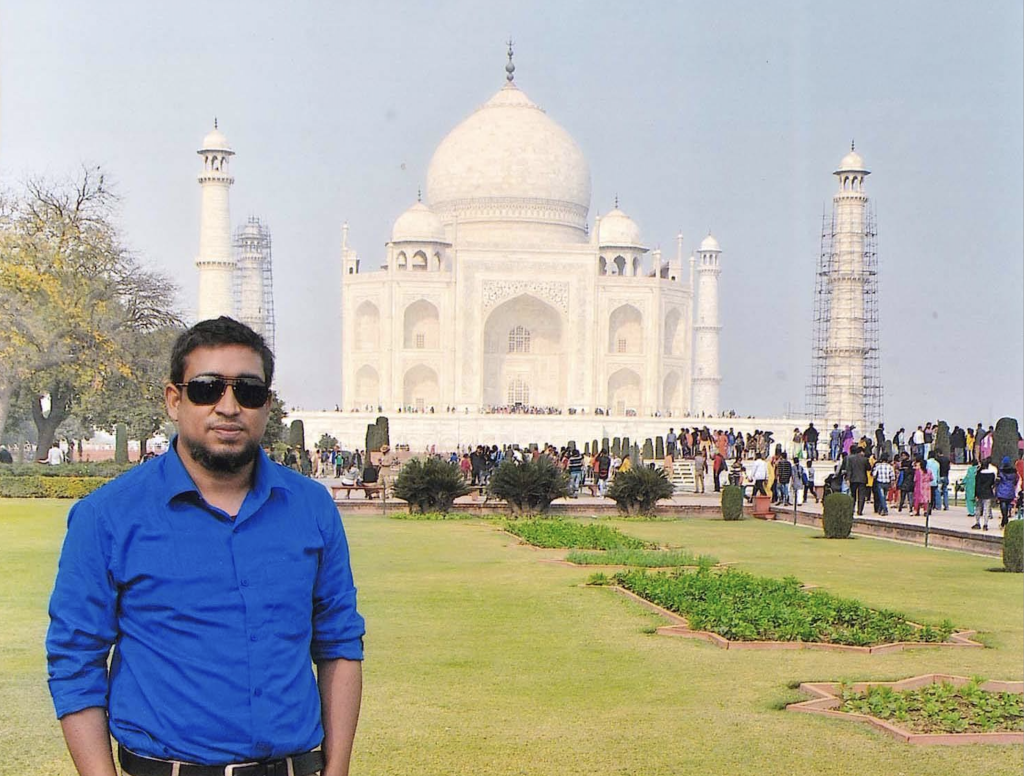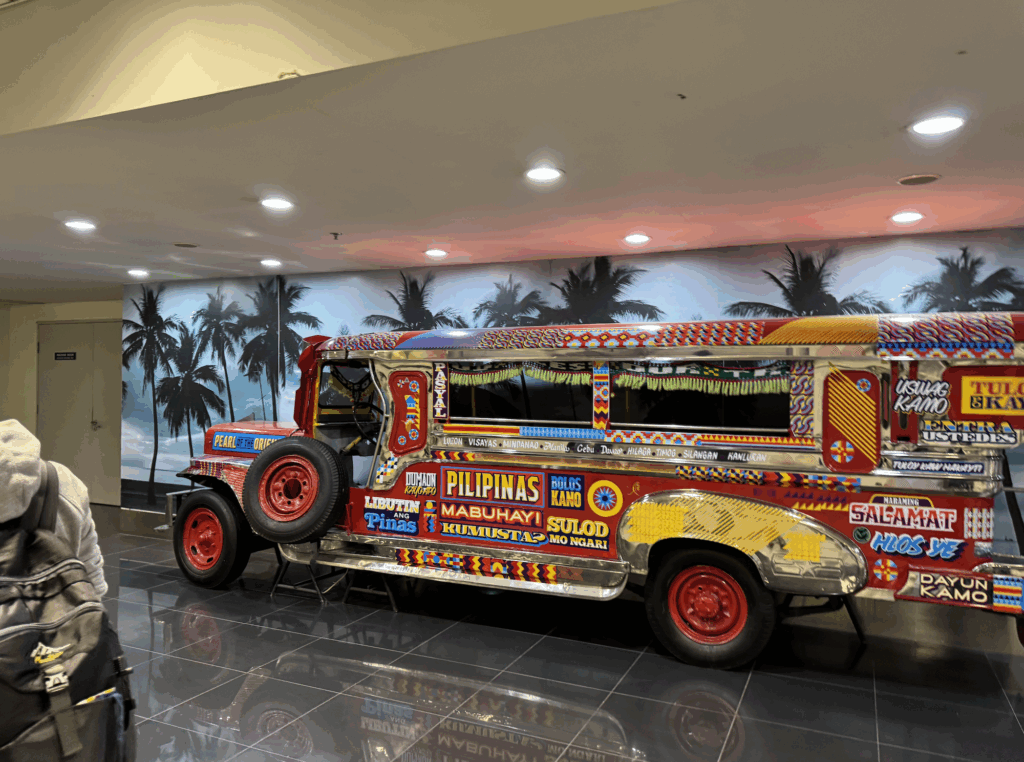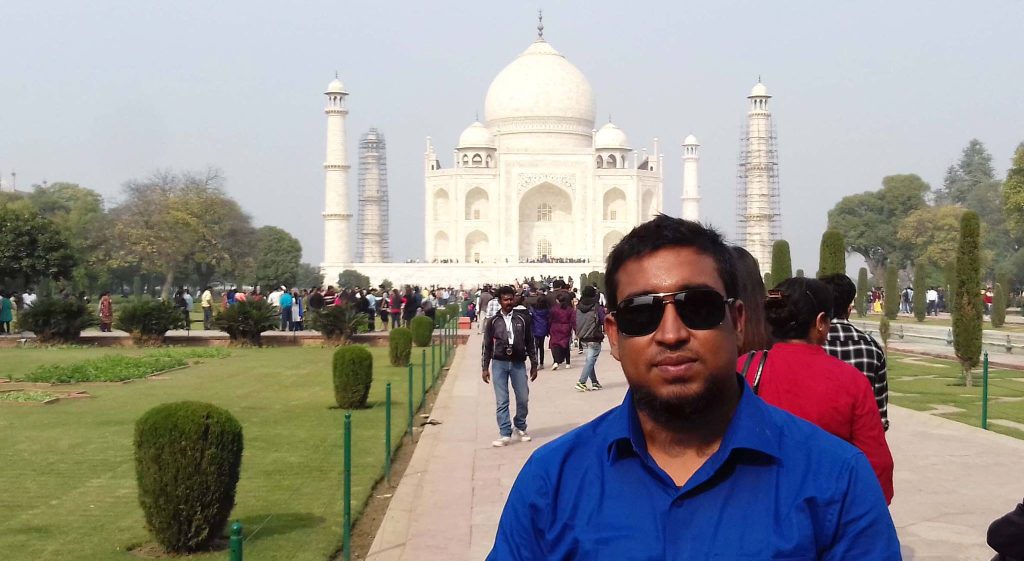Part 1 – Kicking Off the Adventure
In the winter of 2017, my friend Mahfuj and I embarked on a short but memorable trip to India with one goal in mind: to witness the breathtaking beauty of the Taj Mahal, one of the Seven Wonders of the World. Winter was the ideal time for our journey, offering a welcome escape from the scorching Indian summers, even if it meant braving the chilly 12 to 15 degrees Celsius temperatures in northern Bangladesh.
Our adventure began in Bogura, Bangladesh, from where we headed to the nearest Indian border crossing at Hili, Dinajpur. We reached the border in the afternoon, and after completing the necessary paperwork and customs procedures, we officially stepped into India at Balurghat. This small Hindu city served as our gateway, offering train connections to larger hubs like Kolkata.
Our plan was to travel to Kolkata first, and then continue our train journey to Agra and Delhi. To reach Kolkata, we opted for an overnight sleeper bus. I distinctly remember the tension in the air that night; there were political disturbances in the region, and our bus driver remained incredibly vigilant. Thankfully, we arrived safely in Kolkata by early morning. The city greeted us with a crisp, cold welcome, with temperatures hovering around 10-12 degrees Celsius – quite typical for early January.

Hawrah Bridge
After grabbing some breakfast, our next challenge was securing train tickets. We quickly learned that obtaining long-distance train tickets in India often requires booking months in advance. However, a helpful station staff member directed us to the Foreigner Quota office at Fairley Place, conveniently located across the Howrah Bridge from Howrah Train Junction. To our delight, we managed to secure tickets on the Rajdhani Express to Agra/Delhi for approximately 1200 Indian Rupees in 2-tier sleeper class.
With tickets in hand, we were thrilled and ready to begin our 38-hour train journey from Howrah, Kolkata, to Agra and New Delhi.
Short Note:
Getting an Indian Visa (Based on 2017 Experience from Bangladesh)
In 2017, acquiring an Indian visa from Bangladesh was a relatively straightforward process, offering a couple of convenient options:
Through an Agent: This was the easiest method. You could simply submit your passport and a passport-sized photograph to a visa agent. They would handle all the necessary paperwork and procedures, arranging for your visa to be issued within approximately 15-20 days. This option was particularly hassle-free, requiring minimal effort on your part beyond the payment to the agent.
Directly at an Indian Embassy/Assistant High Commission: The alternative was to personally visit a designated Indian Embassy or Assistant High Commission (for example, the one in Rajshahi, if it was your nearest). Here, you would need to fill out an application form and submit it along with your passport and a passport-sized photograph.
 Part 2 – Train Tales, Taxi Troubles, and Taj Mahal’s Timeless Beauty
Part 2 – Train Tales, Taxi Troubles, and Taj Mahal’s Timeless Beauty
Our journey from Kolkata to Agra on the Rajdhani Express was an adventure in itself, spanning a full 38 hours. The rhythmic clickety-clack of the train wheels became the soundtrack to our long haul. While our tickets didn’t include meals, the convenience of purchasing food directly on board was a lifesaver. The train staff offered a continuous stream of refreshments, serving main dishes three times a day and snacks twice. The best part? Everything was incredibly affordable, allowing us to enjoy delicious meals without breaking the bank, whether we opted for a full package or simply picked items à la carte.
Upon our arrival at Agra station, the excitement of finally being in the city of the Taj Mahal was almost overwhelming. However, our initial enthusiasm was quickly tempered by a classic tourist trap. A taxi driver, seemingly eager to help, convinced us that our hotel was a distant and complicated trek. Without thinking to cross-reference his claims with Google Maps – a lapse in judgment I still kick myself for – we fell for his spiel. He not only charged us an exorbitant fare for a short ride but also spun a tale about securing us a “cheap entry” into the Taj Mahal, a promise that turned out to be completely false. We later discovered that our hotel was, in fact, incredibly close to the monument. As SAARC citizens, the entry fee for the Taj Mahal was a fixed 750 Indian Rupees, a non-negotiable cost that every visitor must pay. It was a frustrating start in Agra, but a valuable lesson learned about being vigilant and verifying information, even when tired.
Despite the minor setback, nothing, absolutely nothing, could diminish the breathtaking impact of the Taj Mahal itself. As we passed through the grand archway, a gasp escaped both Mahfuj and me. There it stood, majestic and serene, the iconic ivory-white marble mausoleum gleaming under the winter sky. Its sheer scale, perfect symmetry, and the ethereal glow of its marble left us utterly speechless. We stood there for what felt like an eternity, simply absorbing its beauty, trying to comprehend how such a masterpiece could exist.
The beauty of the Taj Mahal is not just in its grand facade but in the meticulous details that adorn every inch. We spent time admiring the exquisite pietra dura inlay work, where thousands of semi-precious stones – lapis lazuli, jade, crystal, turquoise, and more – are precisely cut and embedded into the marble, forming intricate floral motifs and calligraphic verses from the Quran. The way the light plays on the polished marble, changing its hue from soft pinks at dawn to dazzling white at noon and golden at sunset, is a testament to its architectural genius. The four slender minarets, designed to lean slightly outwards to prevent them from collapsing onto the tomb in case of an earthquake, frame the central dome, creating a sense of perfect balance and harmony.
 It truly made us wonder: how was it possible for such a structure to be built hundreds of years ago, long before the advent of modern machinery and technology? The Taj Mahal was commissioned in 1631 by the Mughal Emperor Shah Jahan to serve as the final resting place for his beloved wife, Mumtaz Mahal, who passed away giving birth to their fourteenth child. It was a monumental undertaking, requiring the dedication of over 20,000 artisans, craftsmen, and laborers, including master builders, stonecutters, calligraphers, and sculptors, who worked tirelessly for more than two decades. The chief architect is widely believed to be Ustad Ahmed Lahori, though a team of architects and designers contributed to its magnificent design, blending Persian, Islamic, and Indian architectural styles into a singular, unparalleled work of art. It stands not just as a tomb, but as an eternal symbol of enduring love and unparalleled craftsmanship.
It truly made us wonder: how was it possible for such a structure to be built hundreds of years ago, long before the advent of modern machinery and technology? The Taj Mahal was commissioned in 1631 by the Mughal Emperor Shah Jahan to serve as the final resting place for his beloved wife, Mumtaz Mahal, who passed away giving birth to their fourteenth child. It was a monumental undertaking, requiring the dedication of over 20,000 artisans, craftsmen, and laborers, including master builders, stonecutters, calligraphers, and sculptors, who worked tirelessly for more than two decades. The chief architect is widely believed to be Ustad Ahmed Lahori, though a team of architects and designers contributed to its magnificent design, blending Persian, Islamic, and Indian architectural styles into a singular, unparalleled work of art. It stands not just as a tomb, but as an eternal symbol of enduring love and unparalleled craftsmanship.
From the grounds of the Taj Mahal, we could clearly see the formidable red sandstone walls of the Agra Fort, standing majestically across the Yamuna River. Given its historical significance and close proximity, we certainly didn’t miss the opportunity to explore Agra Fort as well, which offered another fascinating glimpse into India’s rich Mughal past.

















